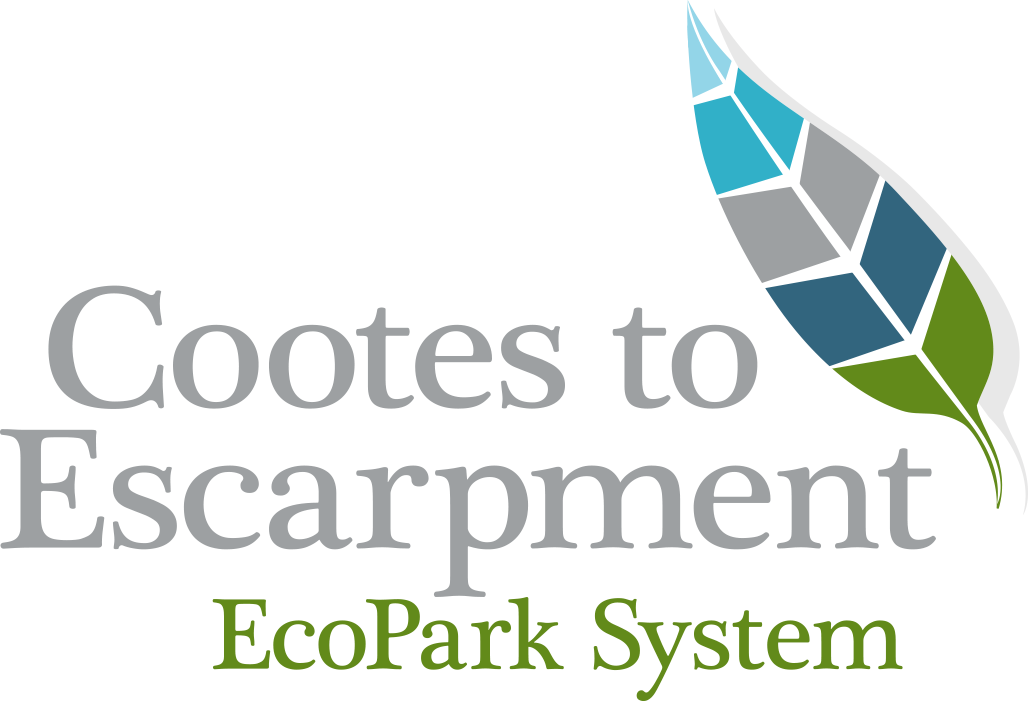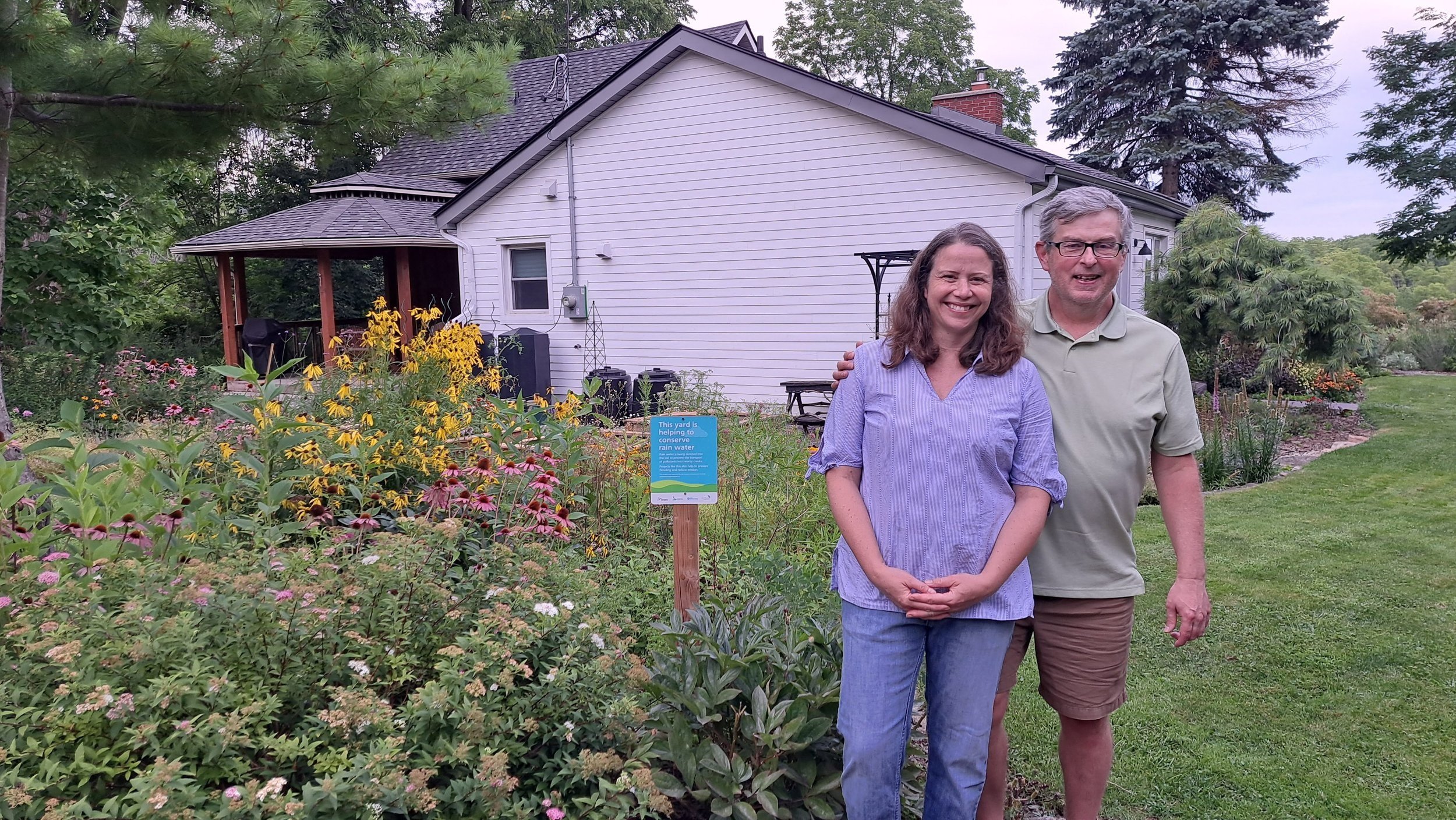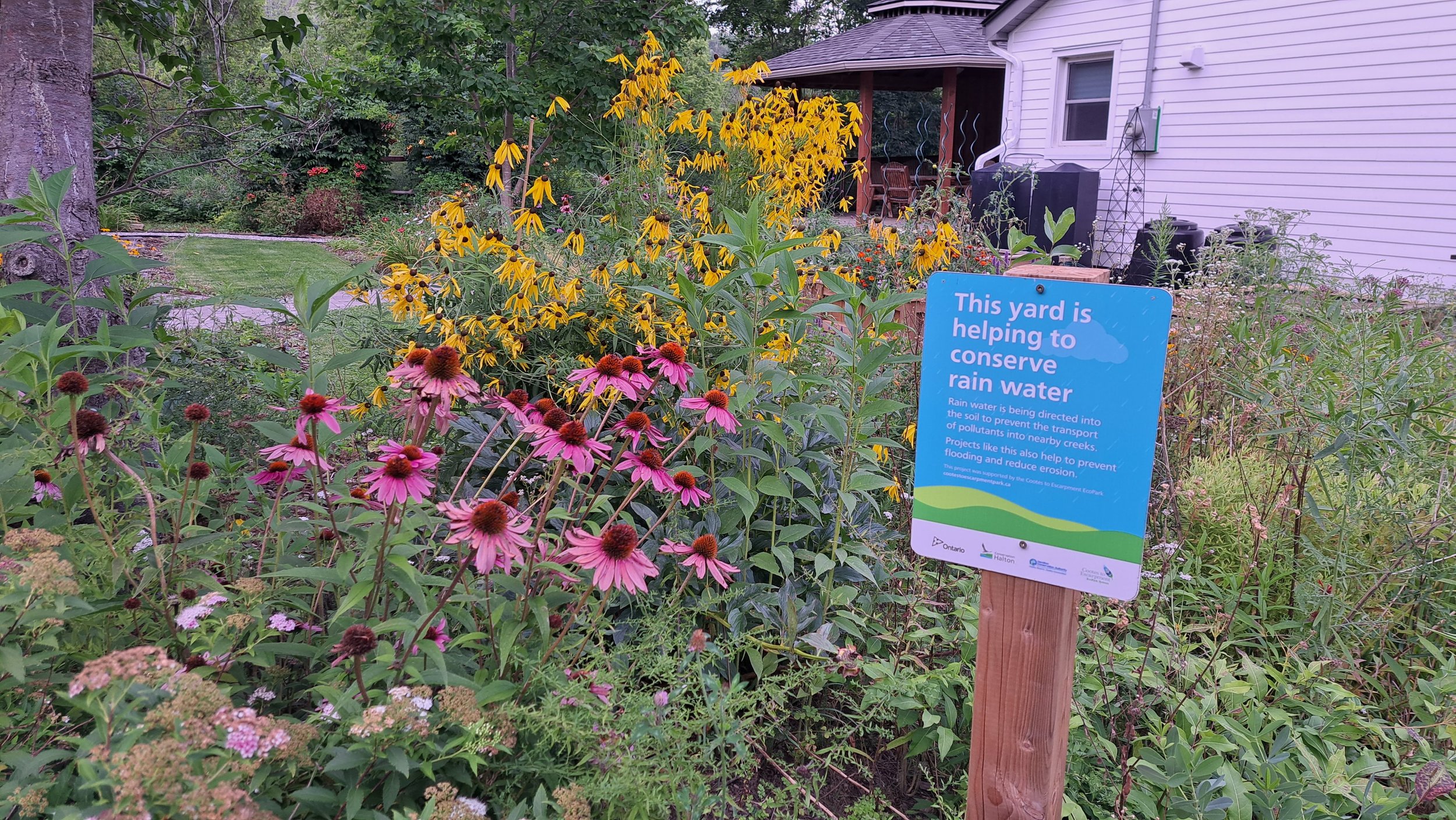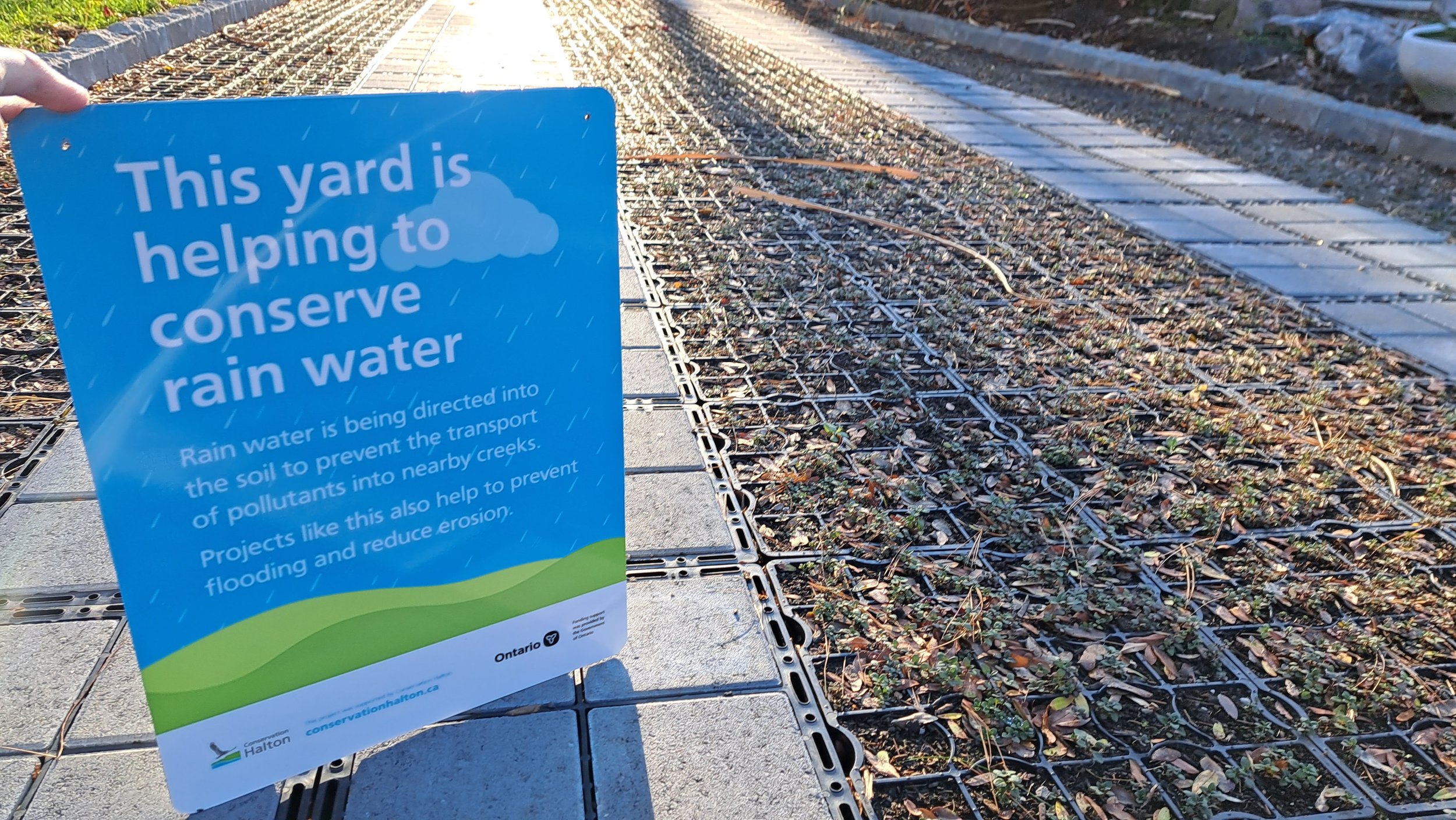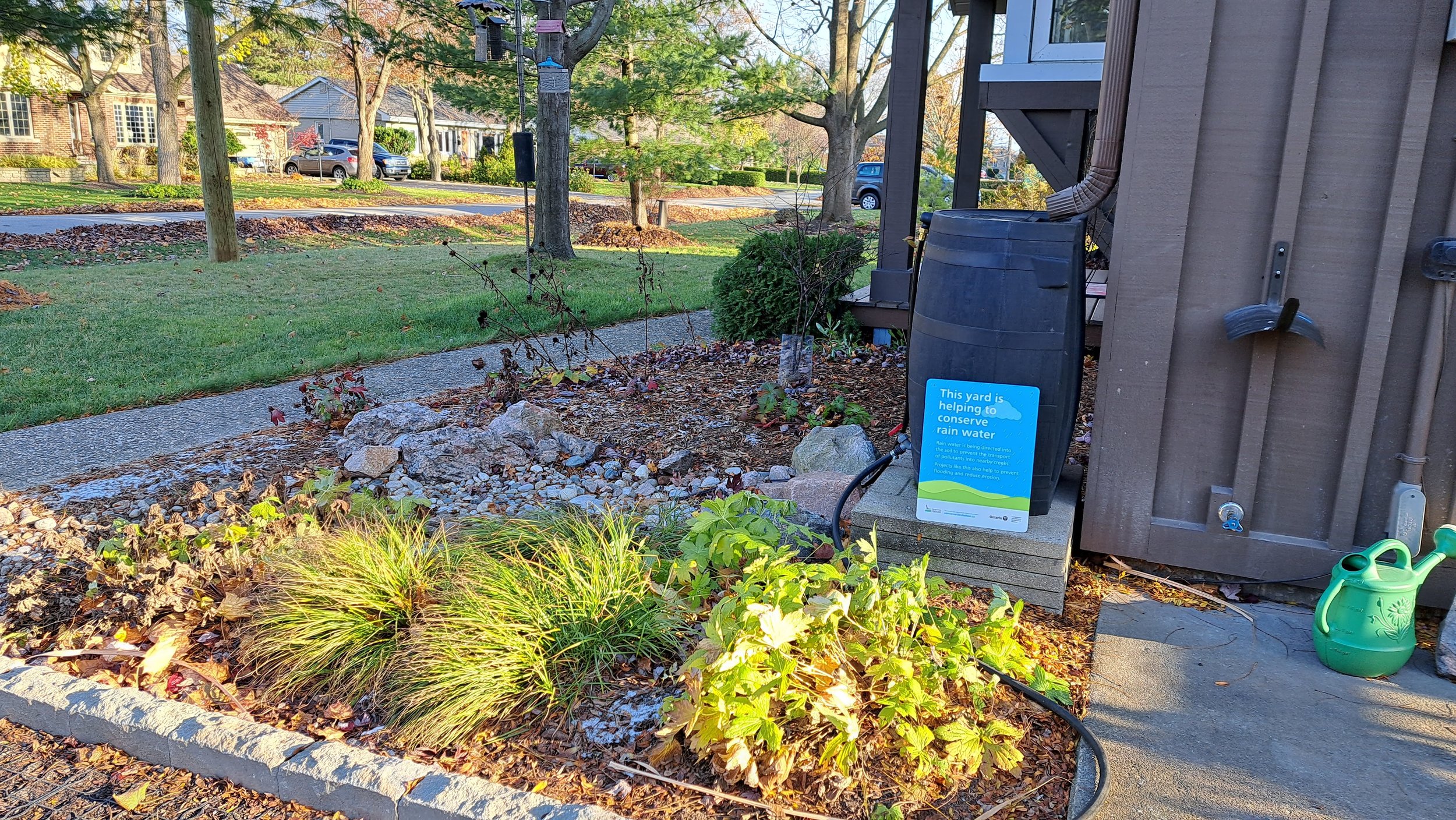Celebrating Watershed Stewards
Conservation Halton
By Carolyn Zanchetta, Restoration Monitoring and Reporting Technician
29 September, 2023
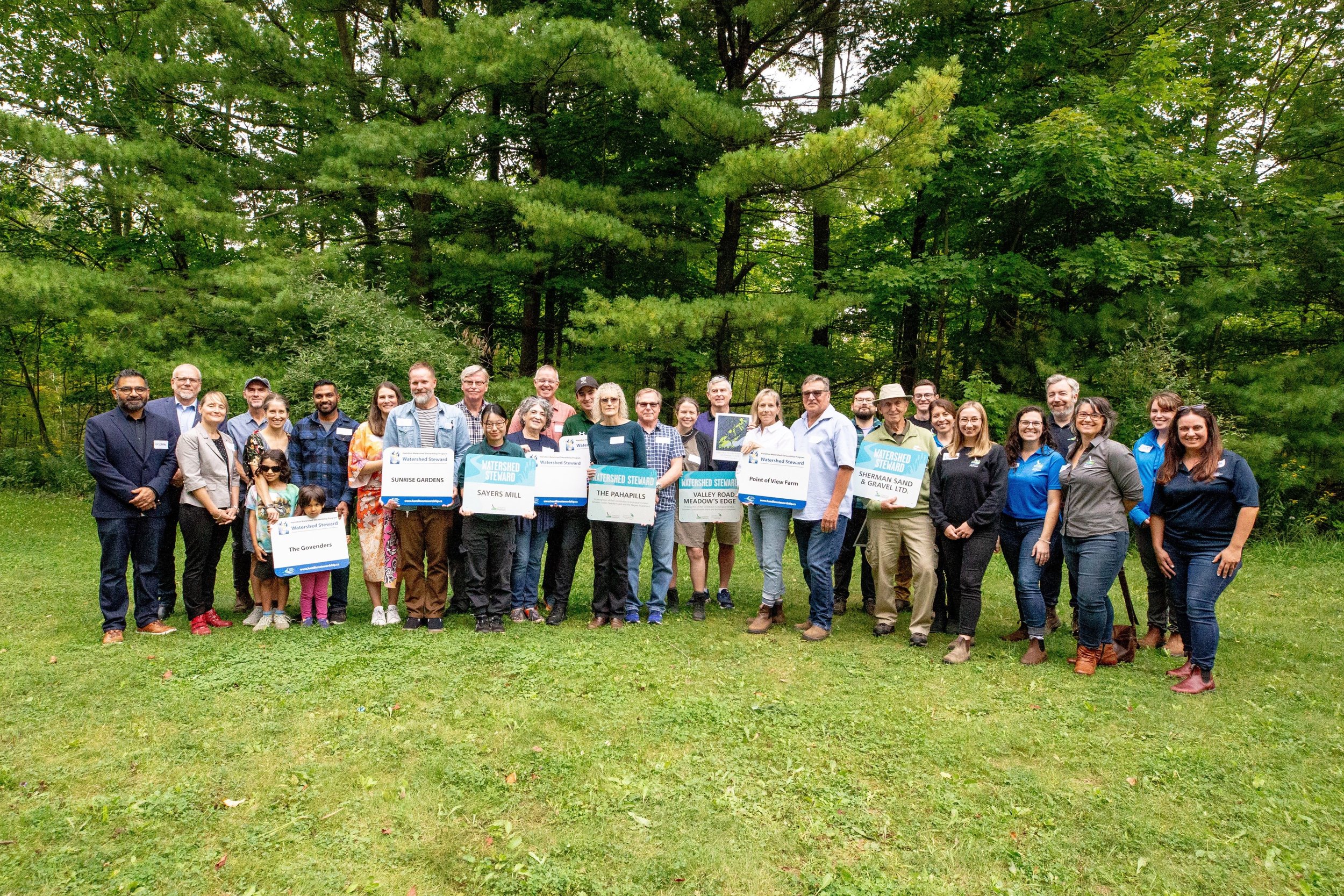
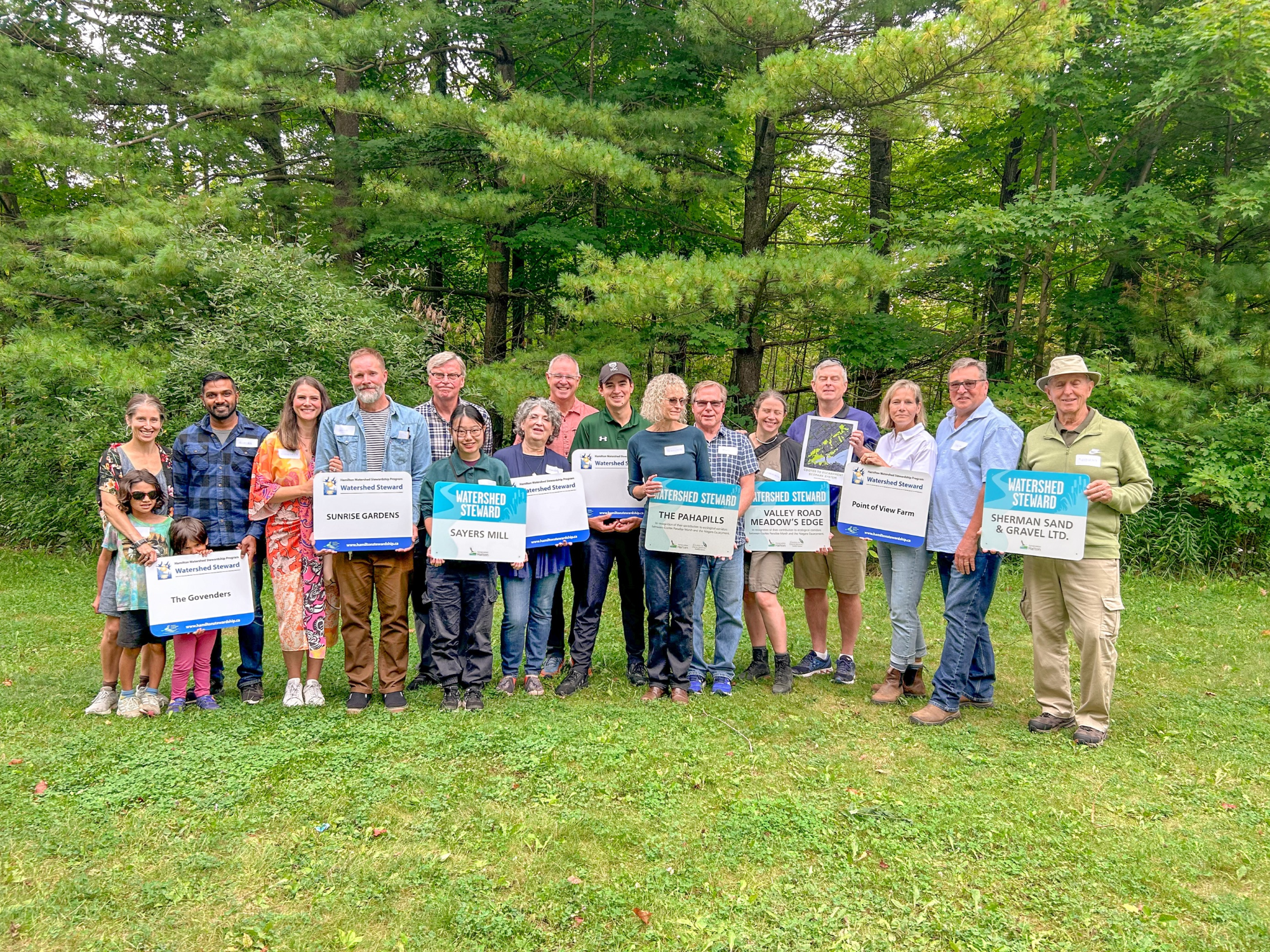
Across Conservation Halton and Hamilton Conservation Authority watersheds, hundreds of landowners are being recognised for protecting nature at home. The Watershed Stewardship Award is offered to landowners and residents who deeply understand the important role they have to play in protecting the natural features on their land. These landowners have been managing their land in a way that protects the health of the watershed by undertaking restoration efforts to enhance watershed health and function. They demonstrate a commitment to protecting and preserving the natural features and watercourses on their property to the best of their abilities for as long as these lands are within their care.
This September, Conservation Halton and Hamilton Conservation Authority co-hosted the annual Watershed Stewards Appreciation Day to celebrate these landowners and honour new award recipients. Together, we celebrated the outstanding efforts in environmental stewardship from those past and present award winners whose projects have protected over 13,400 acres of wetlands, woodlands, floodplains, and watercourses in the Hamilton and Halton watersheds.
In 2023, Conservation Halton presented two unique awards in partnership with the Cootes to Escarpment EcoPark System, recognizing the importance of maintaining ecological corridors that support the safe movement of plants and wildlife as they move through our cities. For their efforts to manage rain where it falls at home while increasing biodiversity, congratulations to the Cootes to Escarpment EcoPark System Watershed Steward Award winners!
Jennifer and Tim Pahapill
Living close to the Royal Botanical Gardens and on the north shores of Hamilton Harbour, Jennifer and Tim Pahapill are surrounded by nature within an urban environment. They felt a responsibility to do the best they could at home to contribute to the natural well-being of their community.
“Stewardship means responsible care of our natural environment and it involves a profound respect for nature,” says Jennifer Pahapill. “I believe we all have a duty to be thoughtful about the consequences of our actions on our habitat.”
They spent time learning about rainwater conservation and low impact development as they researched their options before deciding to put in a rain garden in 2021.
“I had never heard of this concept before,” Jennifer notes, “but it sounded intriguing, so I read further and discovered the many benefits of having one.”
Benefits like reducing stormwater runoff, filtering pollutants, and boosting biodiversity with native plants. Further building on their rainwater conservation efforts, the following year they replaced their asphalt driveway with a new permeable EcoRaster system.
“What I’ve noticed since then is that during heavy rainstorms, the ditch along the street no longer fills up. This is quite a remarkable change and dramatically shows how projects like these can help mitigate flooding.”
In their walkable neighbourhood, their yard has become a beloved feature and interest point, as well as an educational opportunity for passersby. Jennifer and Tim encourage others to get involved: “Rainwater conservation is an easily attainable goal. Using rain barrels, creating a rain garden, or replacing driveways or patios with permeable materials may seem like small steps, but just imagine if every property adopted even one of these approaches!”
Sarah Wakefield and Colin McMullan
Sarah and Colin moved into their home on Valley Road and quickly embraced their role as a connecting property in the Cootes to Escarpment EcoPark System. Sandwiched between the Royal Botanical Gardens and a parcel of Conservation Halton, their countryside home is a valuable ecological corridor for plants and wildlife.
“We moved in just before COVID,” recollects Sarah, “so it was fantastic to be so close to nature and to have that opportunity to see the changes through the season and see the animals and all the creatures come through here, sometimes on their way other places sometimes because they are living in the meadow or in the forest or around the yard.”
From the beginning, their focus was on being good neighbours to the conservation lands around them by taking care not to encroach, and then carefully selecting native species to begin filling in their lawn. When they wanted to take it further, they reached out to their Cootes to Escarpment EcoPark System neighbours for advice and support.
“[Conservation Halton] staff came out and visited the site and talked us through some of the invasive species that were on the property and some of the things that we could potentially do. We decided that we needed a rain garden and we saw that there was an opportunity for some funding for the rain garden project.” They have since installed multiple vibrant rain gardens and a system of rain barrels to help manage water on their property.
When asked to share advice for other residents looking to take action at home, Sarah acknowledges that it can sometimes seem a little overwhelming: “It doesn’t have to be huge, especially right at the beginning. Start small, definitely plant native species: they’re so beautiful and they provide so many more benefits beyond ornamental. Think about your relationship with the land as something that you can take seriously and that you can do something about.”
